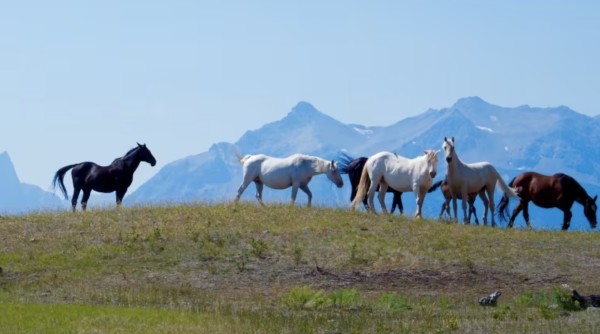
“We have had a strong relationship with [them] for a long, long time,” he said. “They help us continue our culture of hunting and pass it down to the next generation.”
To protect the horses from culls, in 2002 the Xeni Gwet’in established the ?Elegesi Qiyus (Eagle Lake Henry) Wild Horse Preserve in the Brittany Triangle, an area between the Chilko and Taseko rivers. Spanning over 7,700 square kilometres, it is said to be North America’s largest preserve for free-roaming horses.
Of the 2,800 free-roaming horses of Chilcotin, about 150-250 of them in the Brittany Triangle are considered to be genetically distinct, with the rest having Iberian ancestry.
Calls for government protection
McCrory’s previous studies have shown that the small herds in the plateau show strong ties to the Canadian horse, a unique breed, which suggests the horses there are not invasive or feral.
He says all the horses in the region should be protected by the B.C. and federal governments.
“They are all genetically diverse group of wild horses and each contribute to the grassland health,” he said.
